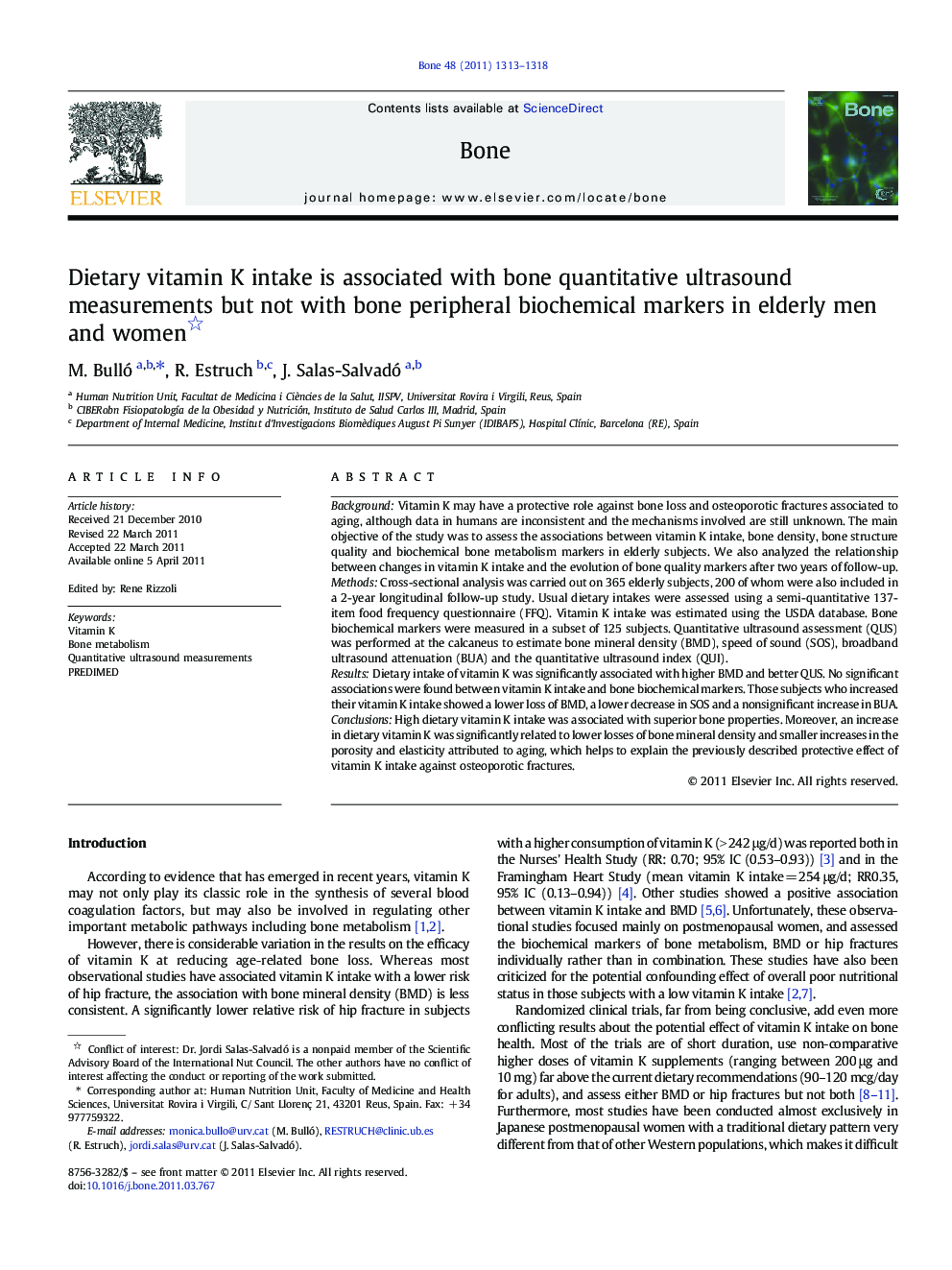| Article ID | Journal | Published Year | Pages | File Type |
|---|---|---|---|---|
| 2779980 | Bone | 2011 | 6 Pages |
BackgroundVitamin K may have a protective role against bone loss and osteoporotic fractures associated to aging, although data in humans are inconsistent and the mechanisms involved are still unknown. The main objective of the study was to assess the associations between vitamin K intake, bone density, bone structure quality and biochemical bone metabolism markers in elderly subjects. We also analyzed the relationship between changes in vitamin K intake and the evolution of bone quality markers after two years of follow-up.MethodsCross-sectional analysis was carried out on 365 elderly subjects, 200 of whom were also included in a 2-year longitudinal follow-up study. Usual dietary intakes were assessed using a semi-quantitative 137-item food frequency questionnaire (FFQ). Vitamin K intake was estimated using the USDA database. Bone biochemical markers were measured in a subset of 125 subjects. Quantitative ultrasound assessment (QUS) was performed at the calcaneus to estimate bone mineral density (BMD), speed of sound (SOS), broadband ultrasound attenuation (BUA) and the quantitative ultrasound index (QUI).ResultsDietary intake of vitamin K was significantly associated with higher BMD and better QUS. No significant associations were found between vitamin K intake and bone biochemical markers. Those subjects who increased their vitamin K intake showed a lower loss of BMD, a lower decrease in SOS and a nonsignificant increase in BUA.ConclusionsHigh dietary vitamin K intake was associated with superior bone properties. Moreover, an increase in dietary vitamin K was significantly related to lower losses of bone mineral density and smaller increases in the porosity and elasticity attributed to aging, which helps to explain the previously described protective effect of vitamin K intake against osteoporotic fractures.
Research highlights► We explore the relationship between dietary vitamin K intake and qualitative bone features. ► Longitudinal association between changes in vitamin K intake and QUS properties were assessed. ► High dietary vitamin K intake was associated with better bone quality properties. ► The increase in dietary vitamin K was significantly related to lower losses of bone mineral density. ► The increase in dietary vitamin K was significantly related to smaller increases in bone features.
